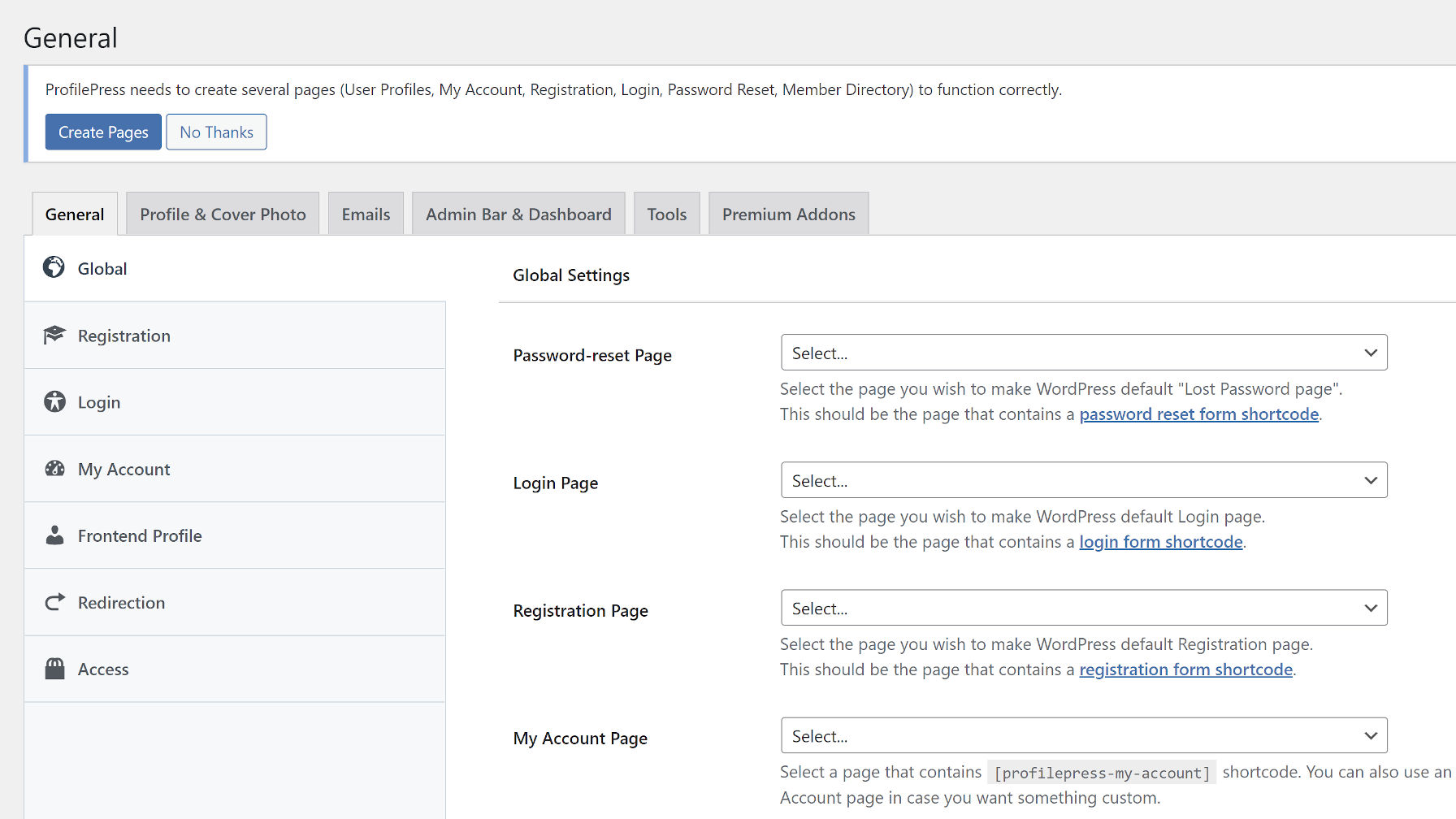Less than two weeks after publishing about the broken user experience of the former Dark Mode plugin being renamed and repurposed, another plugin development company decided to do the same. The consensus seems to be that this is a bad idea. However, the ProfilePress Team forged ahead and repurposed the WP User Avatar plugin.
Instead of a simple, single-purpose custom avatar solution, it is a full-fledged user registration, profile, login, and membership management plugin.
It is now called ProfilePress. But, let’s call it ProfilePress Lite because there is a commercial component where you can upgrade to the actual ProfilePress premium plugin. We need to differentiate the two. Plus, the plugin itself uses that term, at least once, in the admin.
The difference between the Dark Mode switcheroo and this one is that WP User Avatar has over 400,000 active installs, and users are voting with their feet. And their ratings. In the past 48 hours, the plugin has received a staggering 60+ one-star reviews — and counting. The WordPress.org support team has already had to close two forum topics. A review titled “Unexpected changes, expected reactions” sums up the situation.
Over 400,000 users can do a lot of damage in a little bit of time.
A fraction of a fraction of a fraction of those 400,000 users can knock a respectable 4.4 rating down to 3.6 in two days.
When no one from the company responds to any of the 60+ reviews, it looks like you have something to hide. Those are 60+ opportunities to at least attempt to smooth things over.
Pre-3.0, WP User Avatar was a simple plugin for managing how avatars were handled on the site and allowing custom photo uploads on a per-user basis. In the plugin’s eight-year history, users had come to expect a solid plugin that handled one thing and handled it well.

In April 2020, the plugin changed ownership. ProfilePress had taken over from Flipper Code, the project’s only contributor since 2014. Bangbay Siboliban was listed as the plugin owner from 2013-2014. It is unclear if this was an acquisition or a simple transfer. Neither the former nor the current owner has responded to a request for comment at this time.
Under new ownership and its version 2.2.5 – 2.2.9 plugin upgrades in the past year, everything seemed to be status quo. ProfilePress kept the plugin going, fixing bugs for multiple releases. Until two days ago, users were likely unaware that a tidal wave of change was roaring their way. No announcements on the ProfilePress blog. No sticky topics in the WordPress.org support forum. Just, here’s your new membership plugin that you didn’t ask for.
Users were greeted with a new settings screen and much more, an admin that was barely recognizable.

As one user put it, “What the heck? Updated plugin and suddenly I have a full membership solution.”
“You had the plugin WP User Avatar that did one specific function — added an avatar to users like when they leave comments on the blog,” wrote another reviewer. “Now I go to update it, and BOOM, a 100% completely different plugin takes its place. “
ProfilePress, the premium plugin, launched in 2015. It is a known product with an existing userbase. I cannot imagine any scenario that makes sense where the company takes a separate plugin that it acquired and implants a lite version of its premium product inside.
Except to capitalize on the 400,000+ active installs for a quick and easy profit.
The knee-jerk reaction is usually to demand the WordPress.org Plugin Review Team implement a rule against it. Some scenarios are less egregious than others. Drawing a subjective line in the sand can be a tough ask of them.
I am coming around to the idea of putting this decision into the hands of users. They are using the review system in the way it was meant to be used. Let them rain down all manner of hell on plugin authors who do this. Let them prop up another plugin with their numbers and hand out glowing five-star reviews for it. WP User Avatars (with an ‘s’) was a decent alternative the last I tried it.
Still, I wonder how much this hurts the plugin with its active install total. The owner might simply weather the storm and capitalize on the users left standing when the dust settles. Even if they lost an unlikely quarter or half of their install count, they are still in a position to profit from premium upgrades. Then, build a new base from users who are unaware of this current debacle.
The more companies that do it without repercussions, the more likely it becomes a trend. But, WP User Avatar’s, ProfilePress’s, ahem, ProfilePress Lite’s users are in open rebellion. Maybe the market will simply decide.
To me, it seems like these folks aren’t aware the community is watching.